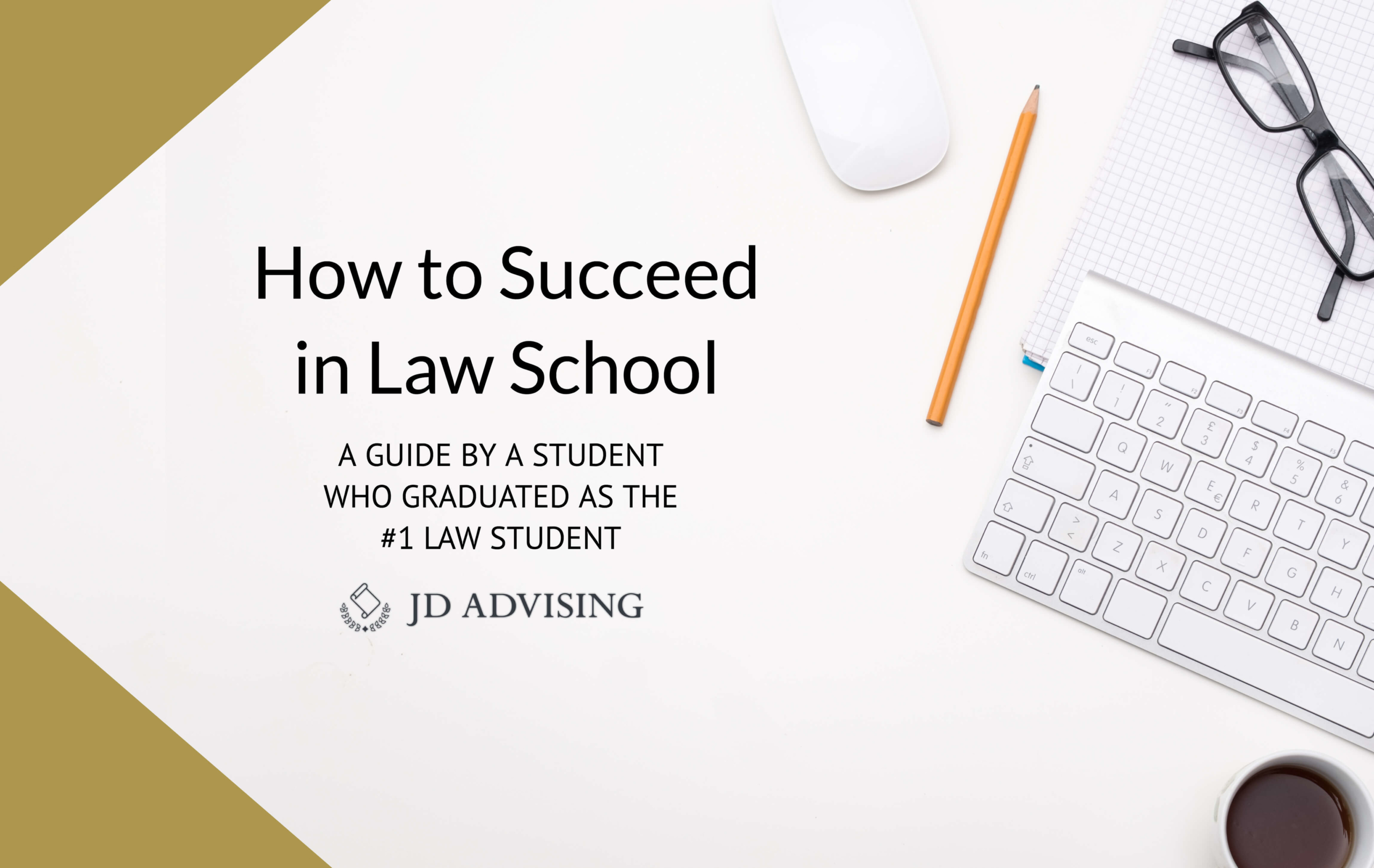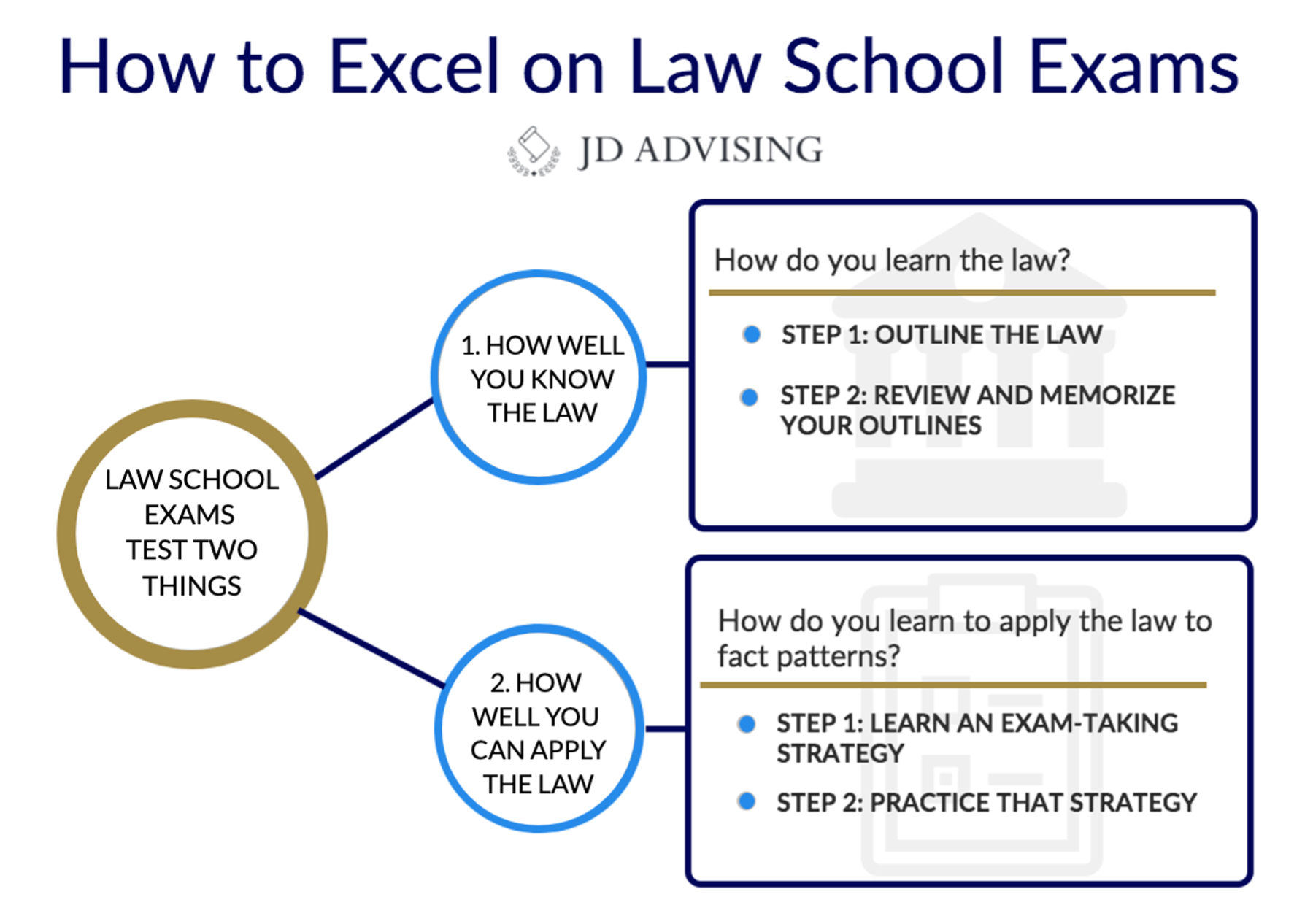An Overview of How to Succeed in Law School
An Overview of How to Succeed in Law School
In this guide, we discuss how to succeed in law school. We define “success” in law school primarily as academic success (i.e., getting high grades!). The reason we do this is that academic success is the most straightforward path to success in your career. It opens the most doors in terms of activities you can join (e.g., law review, moot court), clerkships and internships that are available to you, and employment in and after law school. It maximizes the opportunities at your disposal. If you want a big firm job right after law school, academic success is a must!
However, we also encourage being a well-rounded law student, including focusing on networking and making sure to stay physically and mentally healthy. All of these things are equally important and closely tied with succeeding in law school as well as professionally and personally.
An Overview of How to Succeed in Law School
Because we are going to primarily define success with academic achievement, there are a few important principles to keep in mind. You will see these principles come up again and again in this guide.
Principle #1: success in law school = success on law school exams
In law school, in the vast majority of your classes, 100% of your class grade will be based on how well you perform on the final exam. So you need to focus on the final exam from the beginning. (A notable exception to this is any legal writing or research class, in which case your grade may be based on more than one assignment.)
Principle #2: law school exams test how well you know the law and how well you can apply it
No matter what class it is or what style exam it is (open book, closed book, essay, or multiple-choice), your law school exam will test two things: (1) how well you know the law and (2) how well you can apply it. So you need to focus on learning and applying the law throughout the semester. That is it!
How do you learn the law really well?
- Outline (i.e., organize the law into an outline)
- Learn your outlines
How do you get good at applying the law to difficult fact patterns?
- Learn a good strategy for answering exam questions
- Practice that strategy
Our guide covers these skills in depth.
Note: this means that other activities (like reading and briefing cases, preparing to be on call) will not contribute nearly as much to your final exam success. You want to prioritize what will help you succeed on exams and recognize you cannot dedicate the same amount of time to these other activities. That brings us to the next principle:
Principle #3: you cannot do everything
If you are focused on learning the law and practicing exams, you will not have hours a day to dedicate to reading cases, briefing cases, joining study groups to talk about cases, or preparing to be on call. You will, of course, dedicate time to do all of these things, but these cannot be your primary focus. Final exams need to be your primary focus from the beginning.
Principle #4: you have to be OK with not following the crowd
In law school, if it is your goal to graduate in, say, the top 10% of your class, remember that only 10% of your class can succeed at that goal. So 90% of your class will, by definition, not graduate in the top 10%.
If you want to excel and distinguish yourself from the pack, you cannot do what the 90% do. Ninety percent of the class will focus most of their time on reading and briefing cases, and talking about cases, or worrying about being on call. They will put off outlining until the middle or end of the semester. And, they will not practice any or very few exams.
You need a different approach—you need to put outlining and practicing exams at the forefront of your study schedule, while still making sure you are effectively preparing for class. But, this means you have to be OK with not following the crowd. At the end of the day, you will stand apart from the crowd and that is the goal.
So, make it a point to not constantly compare yourself to others. Just focus on what you need to do to succeed.
Principle #5: the #1 thing to focus on is what your professor says in class
Many students get lost in all kinds of supplements, commercial outlines, student outlines, etc. Some end up consulting so many supplements that they get overwhelmed. Some supplements are very helpful and can save you time (and we discuss them in this guide). But if you ever feel overwhelmed by the number of supplements and resources available to you, just remember that your focus should be on what your professor says in class. Your professor writes the final exam. Your final exam determines your grade. If you never consulted one outside resource and focused solely on every word your professor said, you could easily get an A in your class. Supplements are just that—supplemental to your main resource, which will be your class notes.
Go to the next topic, Overview of 1L year: What classes will I take my first year of law school?
Seeking Success in Law School?
- Benefit from personalized one-on-one tutoring by our seasoned law school tutors.
- Explore our NEW and highly acclaimed law school study aids, available for a free trial.









Leave a Reply
Want to join the discussion?Feel free to contribute!